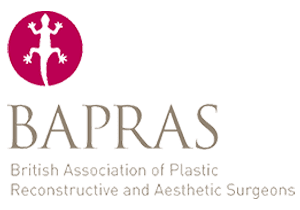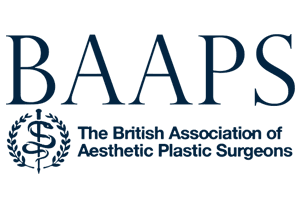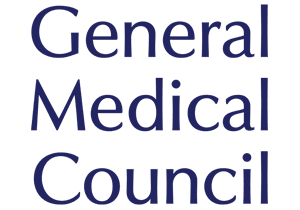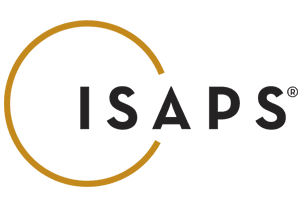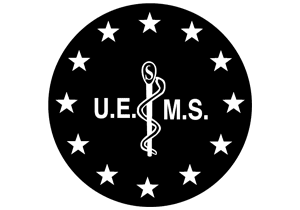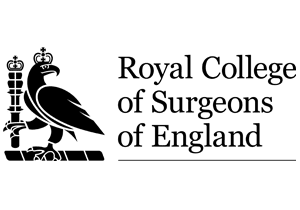
Whether you’re opting for upper eyelid surgery, labiaplasty, or one of our many other treatments, preparing for your plastic surgery properly is key to achieving optimal results and a smooth recovery.
Think of your upcoming procedure as a journey – one that begins long before you step into our Chester clinic. Just as you’d plan for a holiday, preparing for your surgery involves thoughtful consideration and a few important steps. But don’t worry – we’re here to guide you every step of the way.
At Cheshire Cosmetic Surgery, we pride ourselves on our expertise, innovative techniques, and personalised care. Our team of skilled professionals is dedicated to helping you look and feel your best. We understand that the prospect of surgery, even minor procedures, can be daunting. That’s why we’ve created this guide to help you prepare physically and mentally for your upcoming treatment.
Remember, your comfort and safety are our top priorities. If you have any questions or concerns at any point during your journey with us, please don’t hesitate to reach out. We’re here to support you and ensure that your experience is as positive and stress-free as possible.
General Pre-Surgery Guidelines
Preparing for your procedure requires dedication, planning, and a complex approach to your health. Here are some areas to focus on:
Health Optimisation
Your body is about to undergo a significant event, so make sure you’re in the best possible health. Here’s how you can optimise your health:
- Balanced Diet: Fuel your body with nutritious foods. Focus on lean proteins, fruits, vegetables, and whole grains. These will provide the essential nutrients your body needs for healing.
- Hydration: Keep your body well-hydrated by drinking plenty of water. This helps with circulation and can aid in recovery.
- Exercise: Maintain your regular exercise routine, but avoid starting any new intense workouts close to your surgery date. Light exercise can help boost your immune system and reduce stress.
- Sleep: Aim for 7-9 hours of quality sleep each night. Good sleep hygiene can significantly impact your body’s ability to heal.
Medication Adjustments
Your current medications can sometimes interact with anaesthesia or affect bleeding during surgery. Here’s what you need to do:
- Provide a complete list of all medications, supplements, and herbal remedies you’re taking to your surgeon.
- Follow your surgeon’s advice on which medications to continue, adjust, or temporarily stop.
- If you’re on blood thinners, you may need to stop these a few days before surgery. Always consult with your GP before making any changes.
- Avoid aspirin and non-steroidal anti-inflammatory drugs (NSAIDs) for at least two weeks before surgery, as these can increase bleeding risk.
Lifestyle Changes
Certain habits can impact your surgery and recovery.
- Smoking: If you smoke, now is the perfect time to quit. Smoking can impair healing and increase the risk of complications. We recommend stopping at least six weeks before your procedure.
- Alcohol: Avoid alcohol completely for at least a few days before surgery. Alcohol can interact with anaesthesia and affect blood clotting.
- Sun Exposure: Protect your skin from excessive sun exposure, especially the area where you’ll have surgery.
Arranging Transport and Aftercare Support
Planning your post-surgery care is also important:
- Arrange for someone to drive you home after the procedure. Even if you’re having a minor treatment, it’s not safe to drive immediately afterwards.
- If you’re having a more extensive procedure, consider arranging for someone to stay with you for the first 24-48 hours post-surgery.
- Prepare your home for your return. Stock up on easy-to-prepare meals, ensure you have comfortable pillows and blankets, and place essential items within easy reach.
Procedure-Specific Instructions
Every procedure at Cheshire Cosmetic Surgery is unique, much like every patient. Here are some specific guidelines for our most common treatments:
Upper Eyelid Surgery
When preparing for upper eyelid surgery every detail matters:
- Stop using eye makeup for at least a week before surgery to reduce the risk of infection.
- If you wear contact lenses, switch to glasses for a few days before and after the procedure.
- Prepare cold compresses in advance – these will be helpful during recovery.
Labiaplasty
Preparing for labiaplasty requires some special considerations:
- Schedule your procedure for a time when you won’t be menstruating.
- Avoid hair removal treatments in the area for at least a week before surgery.
- Purchase loose, comfortable underwear for your recovery period.
Ear Correction
As you prepare for ear correction surgery, keep these points in mind:
- Avoid hair dyes or chemical treatments for at least two weeks before and after surgery.
- If you have long hair, consider getting a trim to make post-operative care easier.
- Prepare soft, button-up shirts that don’t need to be pulled over your head.
Skin Cancer Surgery, Lip Lesion Removal, Mole Removal
For these procedures, your skin care routine leading up to the surgery is crucial:
- Avoid any harsh skin treatments or new products in the weeks leading up to your procedure.
- Stay well-hydrated to keep your skin in optimal condition.
- If the area to be treated is usually exposed to the sun, be extra vigilant with sun protection.
Lipoma Removal, Cyst Removal
Preparing for these procedures is straightforward:
- Avoid taking blood-thinning medications as advised by your surgeon.
- If the area is typically covered by clothing, consider what you’ll wear post-surgery for comfort.
Scar Revision Surgery
As you prepare for scar revision:
- Follow any specific skin care instructions provided by your surgeon.
- If you’ve been using any scar treatments, discuss with your surgeon whether to continue or pause these.
Non-surgical Treatments (Dermal Fillers, Skin Relaxing Injections, Vaginal Injections, Lip Fillers, Lip Flip)
Even for non-surgical treatments, you should:
- Avoid blood-thinning medications and supplements for a week before treatment to minimise bruising.
- If you’re prone to cold sores and having lip treatments, ask about preventative medication.
- For vaginal injections, avoid sexual activity for 24 hours before the procedure.
The Day before Surgery
Here’s how to ensure you’re fully prepared:
- Review all pre-operative instructions one last time.
- Prepare your post-operative supplies (e.g., ice packs, gauze, prescribed medications).
- Set out comfortable, loose-fitting clothes for the next day.
- Remove all jewellery, including piercings.
- If required, shower with an antibacterial soap.
Pack a small bag with these essentials:
- Your identification and any required paperwork
- A list of your current medications
- Comfortable, loose-fitting clothes to wear home
- Sunglasses (for eye procedures)
- A book or tablet for waiting times
- Any post-operative supplies your surgeon has advised you to bring
For procedures requiring anaesthesia:
- Stop eating solid foods 8 hours before your scheduled surgery time.
- Clear liquids (water, clear tea, black coffee) are usually allowed up to 2 hours before surgery, but always follow your specific instructions.
- Avoid smoking and alcohol consumption.
On the Day of Your Procedure
Choose your outfit carefully:
- Opt for loose, comfortable clothing that’s easy to put on and take off.
- For upper body procedures, choose a front-opening top.
- For lower body procedures, loose-fitting trousers or a skirt are ideal.
- Wear flat, slip-on shoes to reduce the risk of tripping.
- Skip the contact lenses and wear glasses instead.
- Leave valuable jewellery at home.
Punctuality is important:
- Aim to arrive at least 30 minutes before your scheduled appointment time.
- Upon arrival, check in at the reception desk.
- You’ll be asked to complete any remaining paperwork and confirm your medical history.
- A member of our team will guide you through the next steps.
We’ll walk you through each stage of your visit:
- You’ll be taken to a private area to change into a gown if necessary.
- Your surgeon will meet with you to review the procedure and answer any last-minute questions.
- The surgical site might be marked and photographed for reference.
- You’ll be escorted to the treatment room or operating theatre.
- After your procedure, you’ll be monitored in our recovery area until you’re ready to go home.
Keep in mind that our team is here to support you every step of the way. Don’t hesitate to ask questions or voice any concerns – we want you to feel completely comfortable and confident.
FAQs about Preparing for Plastic Surgery
Can I wear makeup to my consultation or pre-operative appointment?
- As part of preparing for your plastic surgery, it’s best to come to your consultation with a clean face, free of makeup. This allows Anca to properly assess your facial features and skin condition. For pre-operative appointments, you can wear minimal makeup, but avoid applying any products to the area that will be treated.
I’m planning a holiday before my surgery. How long should I wait after returning before having my procedure?
- When preparing for your plastic surgery, it’s important to consider travel timing. We recommend waiting at least two weeks after returning from a holiday before undergoing any surgical procedure. This allows your body to readjust to your normal routine and environment, reducing the risk of complications. If you’ve travelled to a location requiring vaccinations, you may need to wait longer. Always inform your plastic surgeon about recent or upcoming travel plans.
I’m currently trying to lose weight. Should I reach my goal weight before having cosmetic surgery?
- It’s generally advisable to be at or near your goal weight before undergoing cosmetic procedures, especially body contouring surgeries like liposuction or tummy tucks. Significant weight changes after surgery can affect your results. However, this may not apply to all procedures. Discuss your weight loss plans with Anca during your consultation to determine the best timing for your specific case.
Are there any foods or supplements I should start taking to promote better healing before surgery?
- As part of preparing for your plastic surgery, maintaining a balanced diet is essential. Certain nutrients can support the healing process. Foods rich in vitamin C (like citrus fruits and bell peppers) and zinc (such as lean meats and seeds) may aid in wound healing. Omega-3 fatty acids (found in fish oil) can help reduce inflammation. However, always consult with your surgeon before starting any new supplements, as some may interfere with surgery or recovery.
I’m a regular gym-goer. How soon before surgery should I stop my intense workouts?
- When preparing for your plastic surgery, it’s important to adjust your fitness routine. While maintaining overall fitness is beneficial, intense workouts should generally be paused about a week before surgery. Strenuous exercise can cause inflammation and increased blood flow, which might raise the risk of bleeding during the procedure. Light to moderate activities like walking or gentle yoga are typically safe up until the day before your operation. Anca will provide personalized advice based on your routine and surgical plan.
Further Reading about Procedures at Cheshire Cosmetic Surgery
- Read more about Tips for Recovery and Aftercare
- Read more FAQs
- Check out Free Cosmetic Surgery Guides
- Read more about Your Patient Journey
- Read more about Medical Dermatology
Medical References for Preparing for Plastic Surgery
- General Surgery Preparation | Stanford Health Care
- Preoperative evaluation and preparation for anesthesia and surgery
- Preparing for success in the operating room — and beyond
- Prepare For Cosmetic Surgery & Recovery
- Preparing Patients for Cosmetic Surgery and Aesthetic Procedures: Ensuring an Optimal Nutritional Status for Successful Results
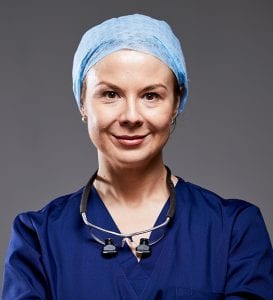
 Dr Dalia obtained her medical degree from Queen Mary University – Barts and the London School of Medicine and Dentistry, graduating with a distinction and being awarded University of London Gold Medal in Medicine (Proxime Accessit) and the Glanfield Harris Best of Gold Medalists 2012-2013 award.
Dr Dalia obtained her medical degree from Queen Mary University – Barts and the London School of Medicine and Dentistry, graduating with a distinction and being awarded University of London Gold Medal in Medicine (Proxime Accessit) and the Glanfield Harris Best of Gold Medalists 2012-2013 award.